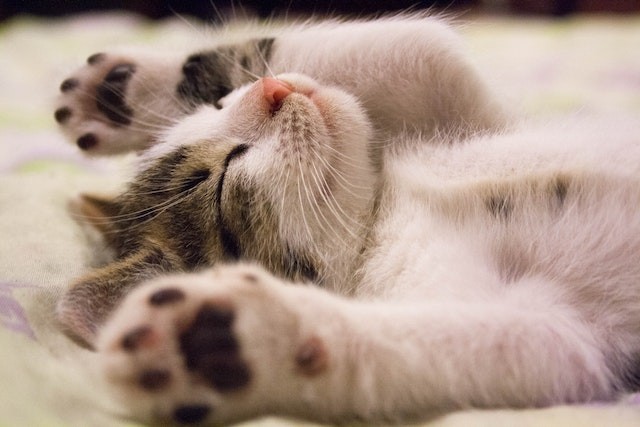
Average Cat Lifespan Indoors: Signs Your Feline Friend Will Live Long Life
Several families consider dogs and cats as official members of their household. For those with feline babies, read on to know how long they can live with you.
Average Cat Lifespan Indoors
Indoor cats tend to enjoy a longer lifespan than those who live outdoors. According to Dutch, their life expectancy is about 10 to 15 years.
Meanwhile, the Vets of East Texas, citing ASPCA, said they could live between 13 to 7 years. The outlet noted that the impact of life expectancy depends on several factors.
Also, popular breeds have different lifespans. For instance, Siamese, Savannah, Russian Blue, and American Shorthair can live up to 20 years. Burmese and Ragdoll can survive up to 18 years, while Persian can live up to 17 years. Calico, Sphynx and Munchkin have lifespans of up to 15 years.
If you want your cat to live longer with you, you should keep these things in mind - routine medical care, diet, exercise, and boredom prevention.
Cats won't complain when they don't feel good, so you won't be able to tell if anything is wrong with them - thus, the need for routine care to ensure that they are doing good.
Feeding felines with moisture-rich food is their ideal diet. However, since many options are available, it's best to discuss with the vet what's best for your pet.
You should also keep your cats active, as some are notoriously lazy. You can interact with them or give them interactive toys to keep them occupied. If you want to play with them, they reportedly can't resist a laser pointer, so have them chase the red dot.
If you don't have much time to play with your felines, help them fight their boredom by providing them with climbing opportunities like cat tower or wall-mounted options.
ALSO READ: Feral Cat Hunting for Kids in New Zealand Scrapped After Backlash
Signs Your Cat Will Live Long
ScienceAlert shared some signs you should look into your feline pets to ensure they will live long. According to the outlet, cats should be able to retain their ability to play and jump as they age. Aging could reduce it, but your cat should maintain a healthy weight.
Also, there will be several changes in appearance. For instance, fur might start thinning, their whiskers could turn and their skin might go scaly.
Additionally, there will be reduced skin elasticity and brittle, thicker nails; minor changes in weight and eyesight; and changes in the look of the eye, including lenticular sclerosis, which causes the pupil to appear hazy, blue-grey, and atrophy. Dental walls can thicken teeth, giving them a yellowish, off-white, or even glassy appearance.
There will also be noticeable behavioral changes as they age, including their sleep cycle, altered vocalization and reduced stress tolerance.
There will be decreased mobility. Their sense of sight, smell and hearing will also decline.
One of the things you should examine to ensure your cat is experiencing healthy aging is the DISHA pattern, which is used to determine cognitive decline in aging dogs. DISHA stands for disorientation, interaction changes, sleep/wake disturbances, house-soiling and activity changes.
According to a study, many of the aging-related alterations that occur in cats are not regarded as abnormal and have no detrimental effects on general health or quality of life. When attempting to decide if an old cat may be deemed "healthy," though, it is crucial to rule out sickness.
RELATED ARTICLE: Record-Breaking Giant Squid Caught in Hawaii, Fisherman Says It Can Make About 100 Plates of Calamari
Check out more news and information on Animals in Science Times.














